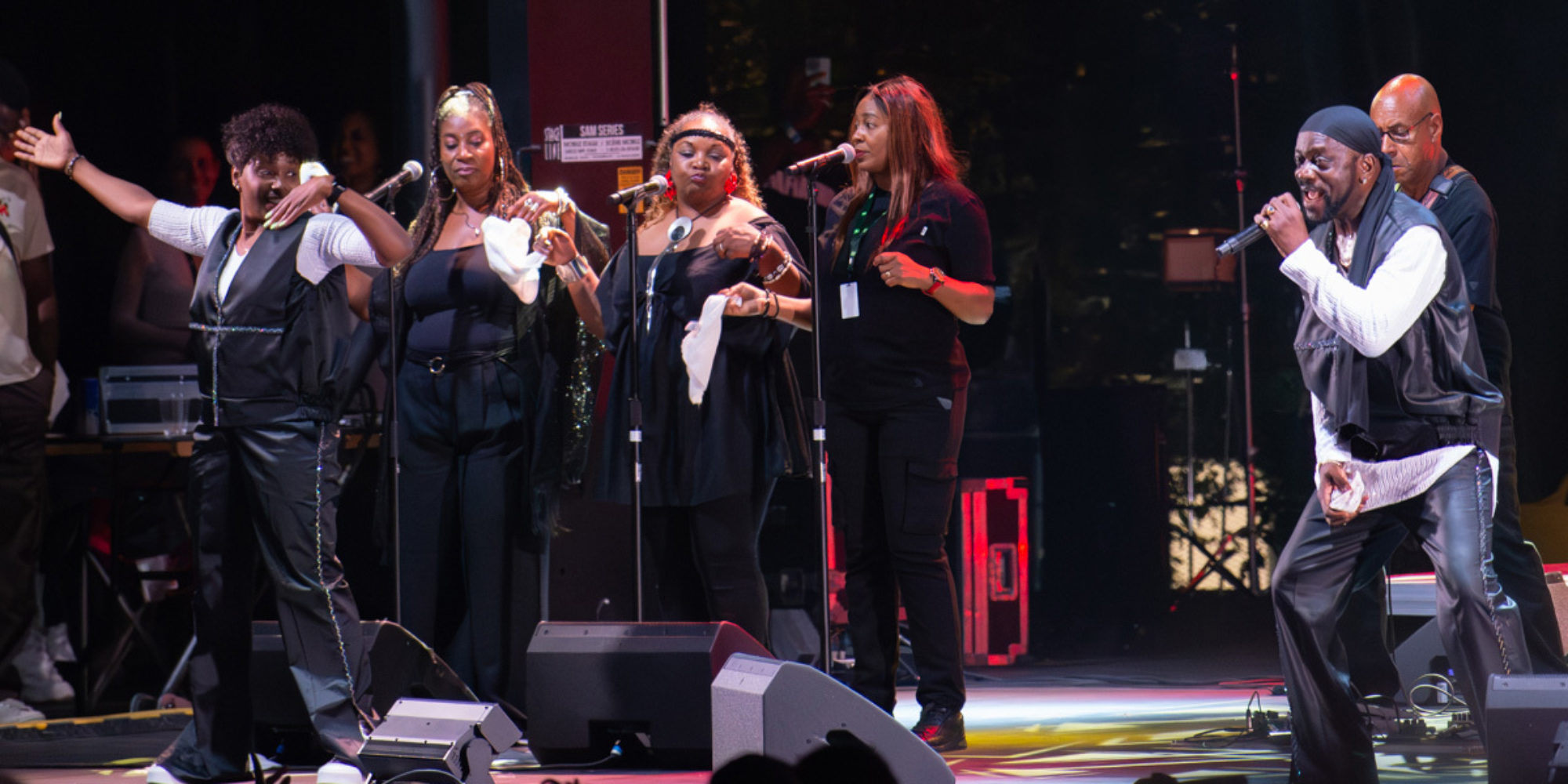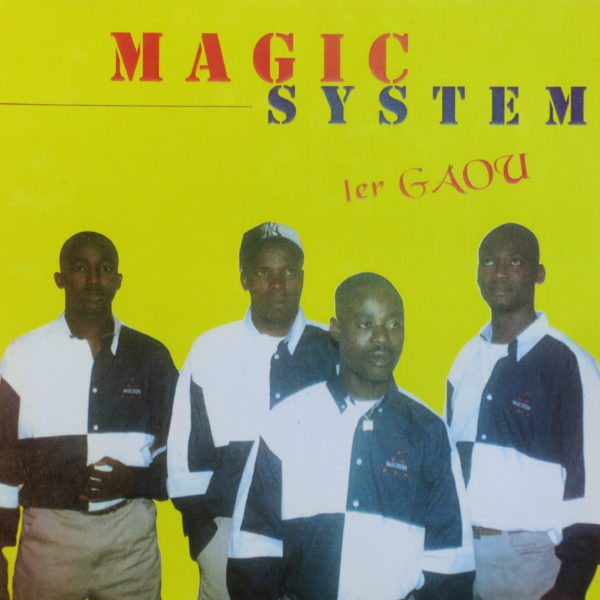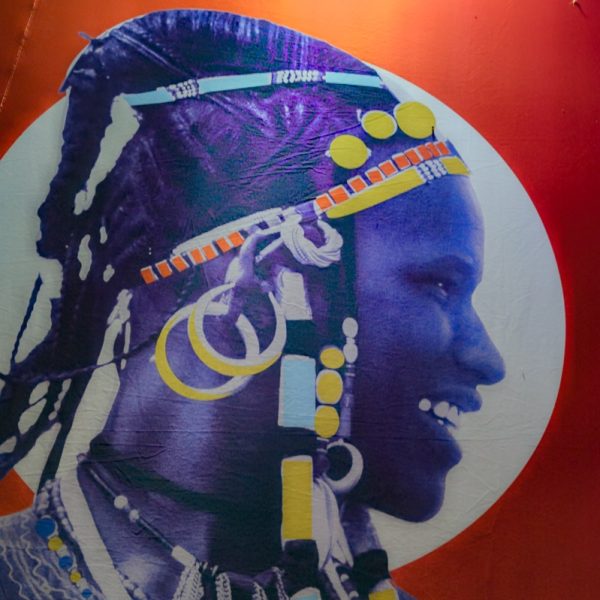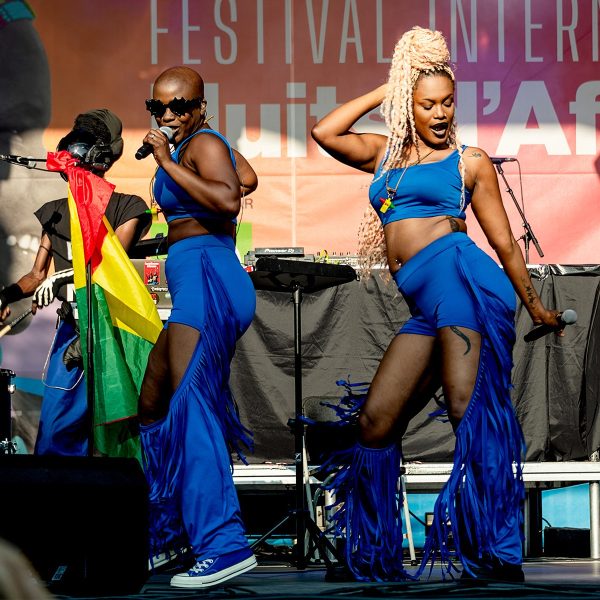Meiway (born Frederic Desire Ehui in 1962) is a legend of Cote D’Ivoirian music. The creator of his own music genre, Zoblazo, Meiway has amassed hit after hit for more than three decades. His music is modern and highly danceable, and it draws on a variety of traditional styles from this ethnically diverse country. His trademark white handkerchief dance, also a tradition, is well known to his fans, and that was clearly evident when he took the stage on the closing night of the 2025 Nuits D’Afrique festival in Montreal in July. Before the show, Afropop’s Banning Eyre and Sean Barlow sat down with the man for their first interview. Here’s their conversation.
Photos by Banning Eyre, unless otherwise noted.
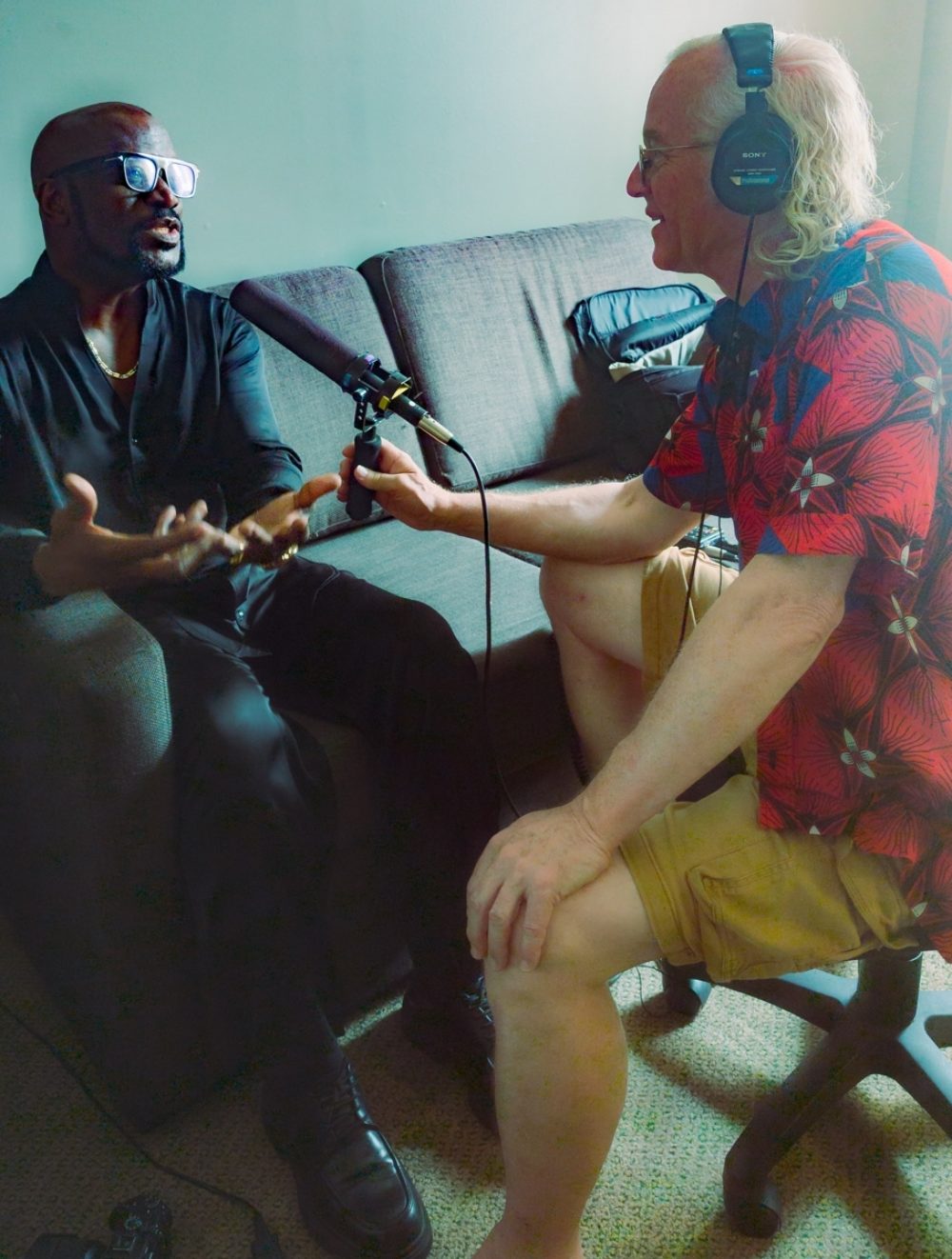
Banning Eyre: Meiway, it’s an honor to meet you. We’ve been listening to your music for years, but this is our first meeting. Before we start, I think you may know our host, Georges Collinet.
Meiway: Georges Collinet? He's still alive?
He most certainly is, alive and well. He's been our host for 38 years.
He was on Voice of America. Maxi Voumvoum!
Voice of America, that's right. But since 1988, he’s been the host of Afropop Worldwide. We will send him your greeting. Ok, the name Meiway. Where did that come from?
It means "my way" in English. When I was younger, my parents didn't want me to pursue music. And all the parents who sent their children to school did it so they would study, get degrees, come back home and do something other than music. But I was passionate about music very early on. As I grew up, I wanted to assert myself in music. And so, I started doing rehearsals, learning to play the guitar, the drums. When we went to church, I played the drums for the choir. I sang and everything. So the parents understood that I really wanted to pursue music. But since the parents didn't want me to do this, the day I decided to go into the studio to record my first album, I put aside my real name, my real first name, out of respect for my parents. And I composed my own artist name which is "My Way." I choose my own way, not my parents’ way. So, I called myself Meiway. In my language we say Meiway.
That's a good story. What language is that?
Zima. They speak the same language in Ghana and in the southeast in our country.
Okay, great. And the next word we have to understand is Zoblazo.
Zoblazo is a contraction of several words, first so blazo. That means “sting, and come back to sting again.” It's a way for me to say that to appreciate my music you have to see me on stage. And if you see me on stage, you'll come back again. So so blazo became Zoblazo.
Got it. How about ziglibithy? That’s an older style of Ivoirian music, right?
Yes, that was Ernesto Djédjé. These are our predecessors, our fathers. And I can say that we're fighting the same battle. Why? Because Ernesto Djédjé made modern music, but inspired by tradition. And so, we saw that when we were little, we said, “Wow, we're going to do that too.” But we're not from the same region. I'm from the south, Ernesto Djédjé is from the west. So I did what he did, but for the south. And the difference with Ernesto Djédjé is that I didn't stop at the south. I take from the south, I go to the center, I take music from the center, I mix it in my Zoblazo. I even take music from the west and mix it in my Zoblazo. That's what has made my 36-year career. I'm still here because I managed to bring together the whole of Ivory Coast behind me.
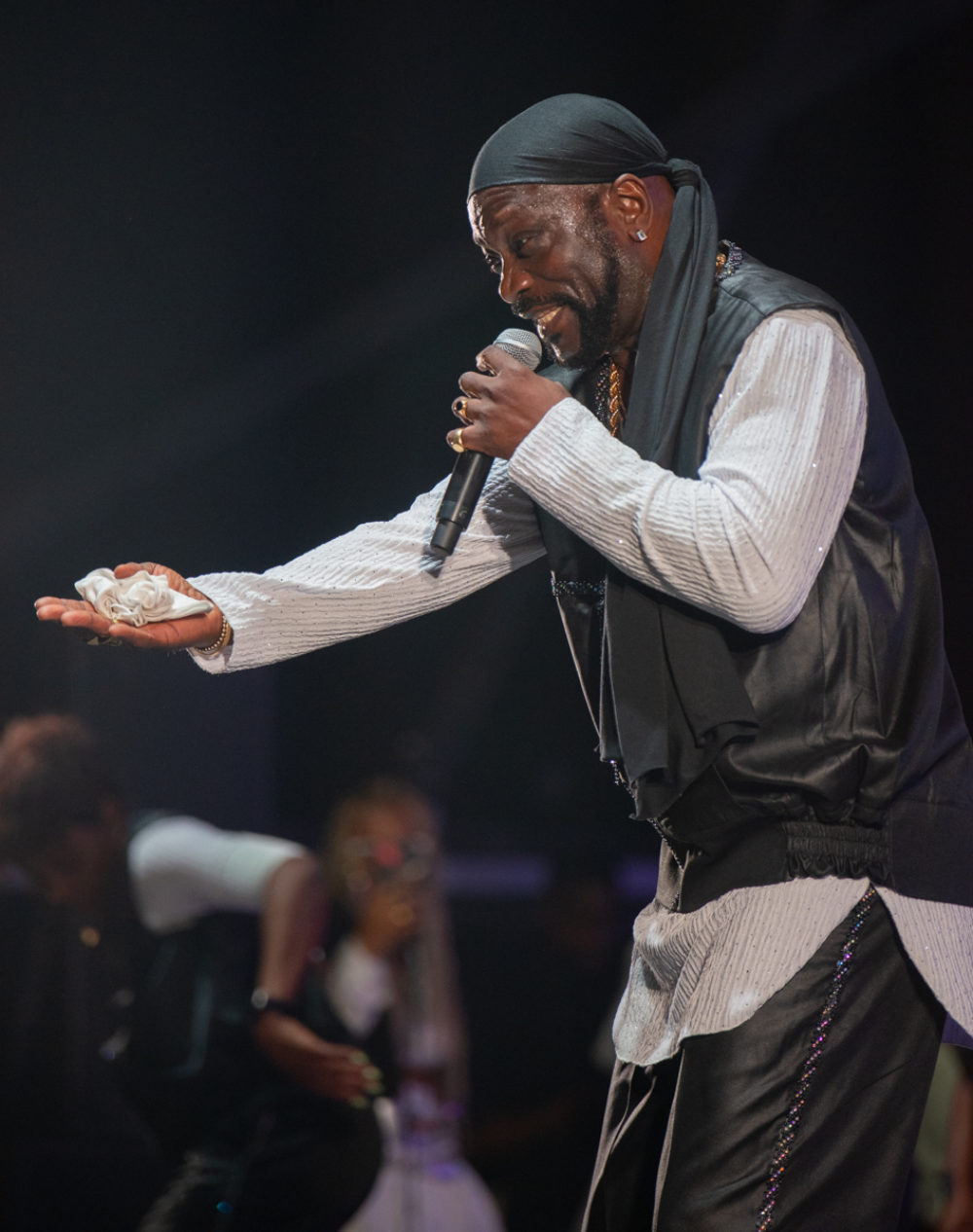
I guess that makes you a national treasure. And now you’re here in Montreal.
We've come here for the closing of this edition of the International Festival Nuit d'Afrique. You'll see tonight that Ivorians identify with what I do, regardless of their origins, whether from the north, south, east, west, or the center. Every time I'm on stage, every Ivorian is involved in what I do. You'll see that tonight.
So you’ve had a 36-year career. But let’s go back to the beginning. What was your breakthrough? Your first big hit?
It was very difficult at first because my parents didn't want me to be a musician, so I had to leave Ivory Coast. In 1985, I was maybe 22, 23 years old. I left the Ivory Coast to settle in France, to go on an adventure. And when I got there, I started working on my Zoblazo. I got to go into the studio for the first time in 1989. That’s how I recorded my first album. It came out in winter, and right away. Number 1.
Wow.
I was very lucky, and that allowed me to continue to believe in what I do and so I continued to do that.
That was around the same time we started our radio program and at the time. It’s also when this festival began.
Really?
Yes. It will be 40 years of Nuits D’Afrique next year. But back at that time, when Afropop started, Congolese music was on top in Africa. Then after a few years, it became coupé-decalé, from Cote D’Ivoire. Now, it's Nigerien Afrobeats and South African amapiano. But let's talk about the moment of coupé-decalé. You were in the midst of that. What was your experience of that moment when that style took the top spot in African music?
Coupé-décalé was born during a very difficult political period in Côte d'Ivoire. We had just experienced coups d'état, and suddenly, there was a curfew. In the evening, after six p.m., no one went out. The soldiers were outside, everyone was watching in the city. As a result, nightclubs, concerts and everything were stopped. We couldn't have fun anymore; we couldn't do anything. And so, we had to find a solution. And so, the DJs who normally work at night improvised. They tried to put on dance parties starting in the afternoon. And while the DJs continued to work, we, the artists, were at a standstill. We couldn't work because the concert halls were closed. So, it was the DJs who took power. And you know, now, DJs don't just use turntables; they also use the microphone. And as they mix and mix, they also sing on the beat. So they got a taste, all of them. All the DJs started making mixes with their voices. And that's how coupé-décalé was born.
Hmm.
And it took hold because it brought back a lot of good memories. It allowed Ivorians to say to themselves that soon, the crisis will end allow us to party again. And it stayed that way until everyone started making coupé-decalé. It became fashionable. So it was a source of pride for me to know that Côte d'Ivoire was represented all over the world by this music. And I ended up doing it on a track called “DJ Tassouman” (2004). It says, “Tonight it's hot, and we're going to do the show with DJ Tassouman.” [sings the song] I was inspired by DJs to do that song. For me coupé-decalé is a source of Ivorian pride, it allowed us to make our culture known a little all over the world. And it is a duty for the patriotic Ivorian to salute this movement.
Thank you. That's a good story. So when did that curfew end?
I think it lasted almost a year. It didn't last that long, but this music had taken over so much that it couldn't stop, because now the DJs were ones to host the parties. They were the ones who controlled everything, everything musical, everything that was done. They themselves had become singers now, so there you go. They only played their music, and they sang at the same time, so they had taken over, but for me that was a good thing. It made the real singers question themselves, to say to themselves, "Ah well, we have to take inspiration from coupé-décalé to do a lot more things.” And that's what I do.
That was a good response to the crisis, because we know the story in Ghana with Jerry Rawlings. He stopped live music for some years, and lots of artists left to go to Germany, or to go into the churches. That changed the history of Ghanaian music.
These are times when you have to hold on. You have to keep fighting, you have to say, “No, this is our job.” We experienced that again with Covid-19, for a year we couldn't work anymore. We couldn't. But if you stop working and you are a musician, what do you do? You can't be a taxi driver; you can't succeed because that’s not your job. When you are a singer and you are passionate about music, if from one day to the next for some reason you decide to stop making music to do something else, will you do it as well? That's the question you have to ask yourself, so it was very difficult for me, but still, it's true for a musician, for real singers… You have to keep your power. It's true that there are periods when you can't work, but after these periods life must go on, and if life must go on, we have to be there. So okay, you have to suffer for a while, you have to accept it, that's life, but at some point you have to be able to bounce back, and that's what I did.
Now is a time when DJs have much more power globally than ever before. They are the kings of the dancefloor. Personally, I still prefer live bands with real drummers and all that. But that's a change. That’s reality. And also there's the change of this new music from Nigeria, Afrobeats, Burnaboy, all that. They're a huge success, filling big stadiums, even in the United States. What is your impression of this moment and these changes in African music?
It's a change that is linked to current fashion. Ten years ago, twenty years ago, we didn't have the networks. Before, we didn't have TikTok, we didn't have Facebook, we didn't have the internet. The world has evolved with computers. So, as we evolve, fashion must also follow and everything you mentioned, Burnaboy, Davido, Tiwa Savage, these are people who grew up with computers, with smartphones. So, they make music that resembles them. It’s true that there is an African soul in it through Fela's Afrobeat, but Fela was a real live musician.
So they’ve mixed that in; they’ve made a good mix, but it's not the music we prefer. Because I also, when I go to a concert, it's to see a real singer, real drummer, real bassist, real guitarist, real pianist, real percussionist. But today, when you go to a concert, there are a lot of computers. There are a lot of machines and people pretend to play on them. It's not what I prefer and I'm afraid that in the end Nigerians will do only that. So they have to pay attention because they knew Fela. They knew King Sunny Ade. They knew many, many, many singers. Victor Owaifo. They were real musicians.
I.K. Dairo.
I.K. Dairo. There you go. So that's what I stand for. A profession is a profession. If you learn it, you have to do it properly. You mustn't cheat. Because the people who pay to come see you, you mustn't deceive them. And if I have any advice to give to the Nigerians, it's this. They’re good. They're at a good level. But they mustn't copy the Americans too much. Because the Americans... Today, when I see a Nigeria n musician on stage, in jeans with sneakers, I see an American, except when he sings.
So, for me, we have a culture to defend. Me today, whatever I want to do on stage, if you come to see me, you can't say that I don't make African music. There are the tam-tams, there are the singers, the dancers, everything... That's African music. And that's what I want the Negerians to do more and more, to take a little more of the computers out of their performance.
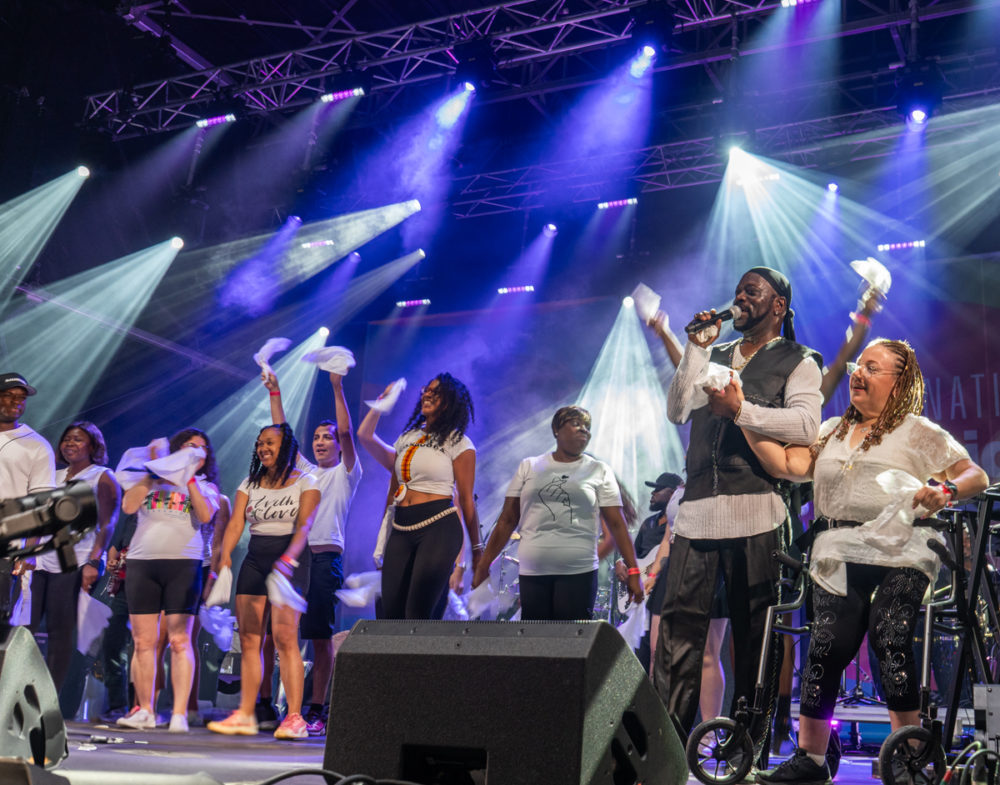
We'll see, but we're from a different generation. Each generation has its culture; we can't change that. But we hope that in the future, people will return to live band music. There’s Fela's son, Femi. He played it at this festival, two nights ago, family, with a big, very strong band. It still exists. So your band tonight… How many musicians? Talk a little about the band we’ll see tonight.
It depends on the show. Today it's two dancers, one on my right, one on my left, me in the middle. I have a pianist, I have a drummer, I have a bassist, I have a guitarist, I have three backing singers and then I have a percussionist. That's the group that will be on stage, so there are about 12 of us. I think that for what I do it's just right, but in Africa, when we play in stadiums, in larger spaces and then there are the means to have more people. There we have much more than that, that is to say that I have four dancers, often even more. I have a second pianist, I have three percussionists. So it depends on the setting.
Twelve is impressive. It’s very difficult to bring a big group here, more difficult than ever before.
Plane tickets, accommodation and everything, so for a festival like this, where admission is free, we come here to help papa Lamine Touré and Suzanne Rousseau (festival founders). I think they’ve done a great job. They are people who deserve our support.
Absolutely. So you played at this festival before?
Ah, yes, several times. This is my fourth time coming. I'm among the record holders.
Wow. Lately, we’ve been coming every summer because it's unique. There's nothing like this in the United States. The number of bands, the discoveries, the ambiance. Just great. So what can you say about the songs you're going to play tonight?
It's a secret. It's beautiful! In any case, we're on stage for at least an hour and a half. So I think we can do at least a dozen songs, twelve, thirteen songs, even more… Fourteen, fifteen. It's a big repertoire with all the songs that people know. So for me, we have all the ingredients to have a great party tonight.
You've created, as you said, a big repertoire. How would you describe the messages in the songs you write? What’s the most important thing you try to communicate to people?
I have no limits. I can sing about love. I can sing about coups d'état, I can sing about a part of the human body. Otherwise, I wouldn't have done “Miss Lolo.” Otherwise I wouldn't have done “Rouler Moutou.” Otherwise I wouldn't have done “Ma Folie.” I have no limits, I even sang a song about thongs, “The String.” Yes, because it was fashionable with women.
I wore pants with the string for hours, so I say, “When I was little, to see mom's panties, you had to undress her, but now you don't need to undress her. You have so many woman with the thong. It's not good.” So I criticized that. “Here is the thong. You didn't wear only the essential. Here is the thong.” I sang a song like that, which we will sing tonight.
I’ll be listening for that one!
No, this is a festival we really like. I think it's the most beautiful festival we attend in the Americas. The happiness we find when we are on the stage at Nuits d'Afrique is incredible. We need to promote African music in Canada. There is work to be done. Moreover, it is an opportunity to say thank you to papa Lamine Touré and to Suzanne. After four editions, I will receive a Francophonie prize for the Nuit d'Afrique festival tomorrow at the Montreal City Hall. So it is a joy for me.
That’s fantastic.
I also thank all your listeners, and especially thank you for promoting African music in the United States. I think we owe you a lot, it's a recognition that we owe you.
So to finish, just in case there are folks out there who don’t know you, what’s the most important thing they need to know about Meiway.
I'm an Ivorian, a singer, and I'm the one who created the music called Zoblazo, and the white handkerchief dance. This is Ivorian music inspired from the tradition for 36 years now, so I thank all of you who support me.
Thank you very much. Have a great show tonight!
For a taste of how that show went...








